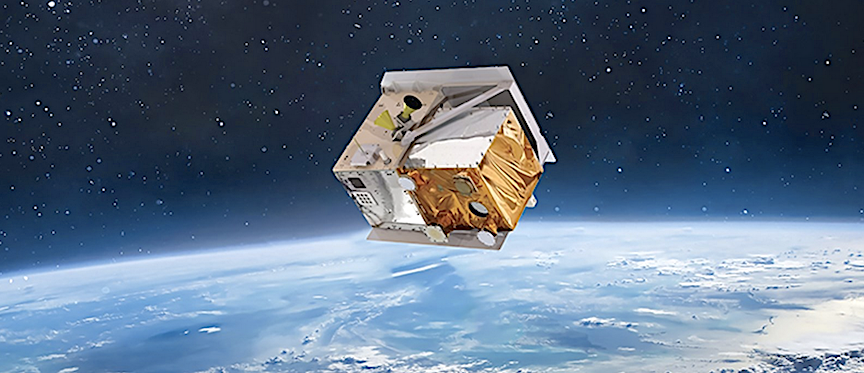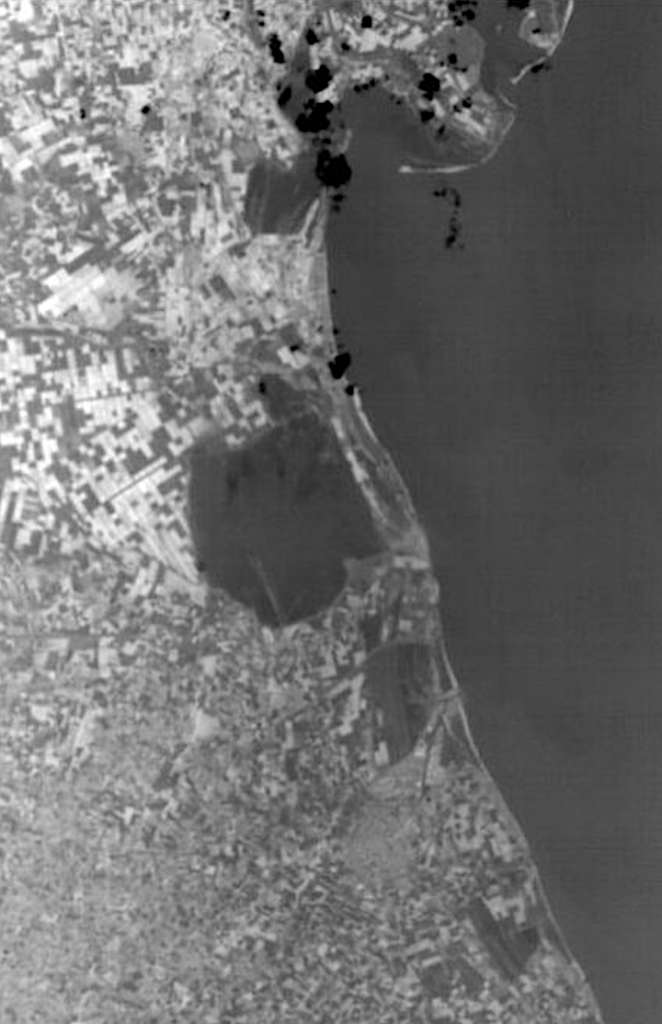
Leonardo DRS, Inc. (NASDAQ:DRS) announces that its new high-precision radiometer technology is being used to measure the Earth’s surface temperature from space. The image collection from the company’s Multiband Uncooled SmallSat Imaging Radiometer (MUSIR) payload is part of an innovative demonstration mission for NASA. MUSIR, with its unique, space-based uncooled thermal imaging radiometer technology, is paving the way for small, affordable satellite constellations.
A constellation of satellites would allow for faster revisit times, enabling more frequent measurements that are important during times of change on the Earth’s surface. DRS, working closely with NASA, was able to move from design to launch readiness in just under 16 months.
“As the mission prime responsible for all aspects of this effort including the payload and ground data processing, DRS was able to meet NASA’s goals of a very tight timeline in a cost-efficient manner,” said Jerry Hathaway, vice president and general manager of the Leonardo DRS Electro-Optical and Infrared Systems business unit.

The MUSIR payload launched aboard a small, commercial satellite earlier this year. It is testing a new technique using bolometers in an instrument operated at room temperature to perform high-precision radiometry for measuring Earth’s surface temperature from space. The technology could pave the way for future satellite constellations dedicated to measuring infrared energy radiating from Earth’s surface.
Traditionally, Long Wavelength Infrared radiometers, have used cooled Focal Plane Array (FPA) technology, that require large, high-powered cryogenic coolers to achieve the necessary cold temperature for operation. By using an uncooled FPA, which can operate at room temperatures and tailored for space, the innovative DRS design eliminated the need for cryogenic coolers. The uncooled technology makes the radiometer instrument much lighter, smaller and with a much lower power requirement, suitable for a SmallSat or a CubeSat.
“This imaging instrument will benefit scientists studying planet Earth by enabling precision multispectral thermal infrared measurements with high revisit times through the use of constellations of small, affordable instruments,” Hathaway said. “Applying our advanced sensing technology to the growing space marketplace is one of DRS’s growth vectors. This market requires innovative technology that can get on orbit quickly at affordable costs. The MUSIR program demonstrates that DRS has the capability and experience to accomplish these goals.”
DRS provides advanced cooled, and uncooled, infrared camera systems for the U.S. government and allies around the world. It has an extensive installed base across multiple domains, including space. Sensing technology is a key strategic focus for Leonardo DRS as the company brings together its industry-leading sensing capabilities and laser technologies for a range of programs across the U.S. government.
